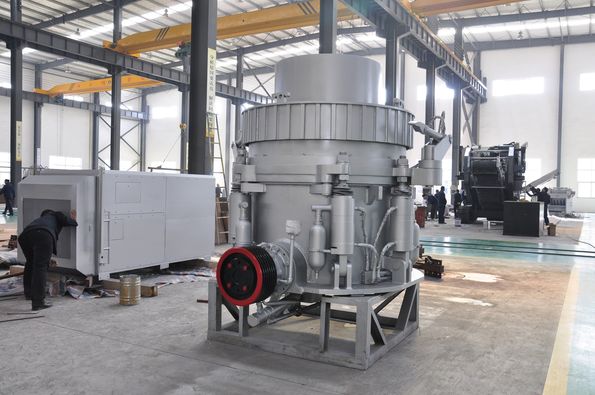Advantages of Cone Crushers Over Jaw Crushers
In the field of crushing and mining, choosing the right equipment is crucial for optimizing productivity and achieving the desired material size. While jaw crushers and cone crushers are both widely used, cone crushers offer distinct advantages in specific applications. This article explores the key benefits of cone crushers compared to jaw crushers, highlighting their efficiency, versatility, and operational strengths.
Key Advantages of Cone Crushers
- Higher Crushing Efficiency
- Cone crushers operate using a combination of compressive forces and rotational motion, which allows for more efficient crushing of hard and abrasive materials.
- Their design enables them to produce finer output sizes in a single pass, reducing the need for secondary or tertiary crushing stages.
- Versatility in Applications
- Cone crushers are highly adaptable and can handle a wide range of materials, including granite, basalt, and other hard rocks.
- They are suitable for both primary and secondary crushing tasks, making them versatile for various industries, such as mining, construction, and recycling.
- Consistent Output Quality
- Cone crushers are known for delivering uniform particle sizes, which is critical for applications like aggregate production and concrete mixing.
- The ability to adjust the settings ensures precise control over the final product’s size and shape.
- Reduced Wear and Maintenance Costs
- Compared to jaw crushers, cone crushers experience less wear on their crushing surfaces, especially when handling hard materials.
- Advanced designs include wear-resistant liners and easy-to-replace components, reducing downtime and maintenance costs.
- Higher Capacity
- Cone crushers can handle larger volumes of material compared to jaw crushers, making them ideal for high-production environments.
- Their continuous crushing action minimizes interruptions, ensuring a steady flow of material through the machine.
When to Choose a Cone Crusher Over a Jaw Crusher
- Material Hardness and Abrasiveness
- For processing extremely hard or abrasive materials, cone crushers are more effective as they can withstand higher stress and provide consistent performance.
- Finer Output Requirements
- If the project demands finer output sizes or specific shapes, cone crushers are better equipped to meet these requirements.
- High-Volume Projects
- In large-scale operations, cone crushers’ ability to handle higher capacities ensures smoother workflows and increased productivity.
- Secondary or Tertiary Crushing Needs
- While jaw crushers excel in primary crushing, cone crushers are more suited for secondary and tertiary stages, providing better results in these applications.
Comparing Operational Principles
- Jaw Crushers: Operate through a compressive force where a fixed plate and a moving plate crush material. Best suited for initial size reduction of large rocks.
- Cone Crushers: Use an eccentrically rotating cone within a stationary chamber to crush material, providing a more refined output.
Conclusion
Cone crushers offer numerous advantages over jaw crushers, particularly in terms of efficiency, versatility, and output quality. While jaw crushers are essential for primary crushing, cone crushers excel in producing finer materials and handling larger capacities. Choosing the right crusher depends on the specific needs of the project, but cone crushers often provide a more comprehensive solution for demanding crushing applications.
Investing in a cone crusher can significantly improve productivity, reduce operational costs, and deliver superior results, making it a valuable addition to any crushing operation.
- > Tire-Mounted Mobile Crushing Station: Which Terrains Are Suitable?
- > Innovative Ball Mill Design for Fine Powder Glass Crushing
- > Cone Crushers for Aggregate Crushing: The Essential Tool for High-Quality Production
- > User-Friendly Hydraulic Cone Crusher: Enhancing Efficiency and Ease of Use
- > PE Jaw Crusher for Laterite Nickel Ore Crushing in Indonesia
- > Advantages of Mobile Jaw Crusher in Construction Waste Recycling
- > Application of Cone Crusher in Secondary and Tertiary Crushing in Metal Ore Beneficiation Process
- > 450-500 TPH River Pebble Crushing & Sand Production Line: Design and Equipment
Hot Product


Online




Message

